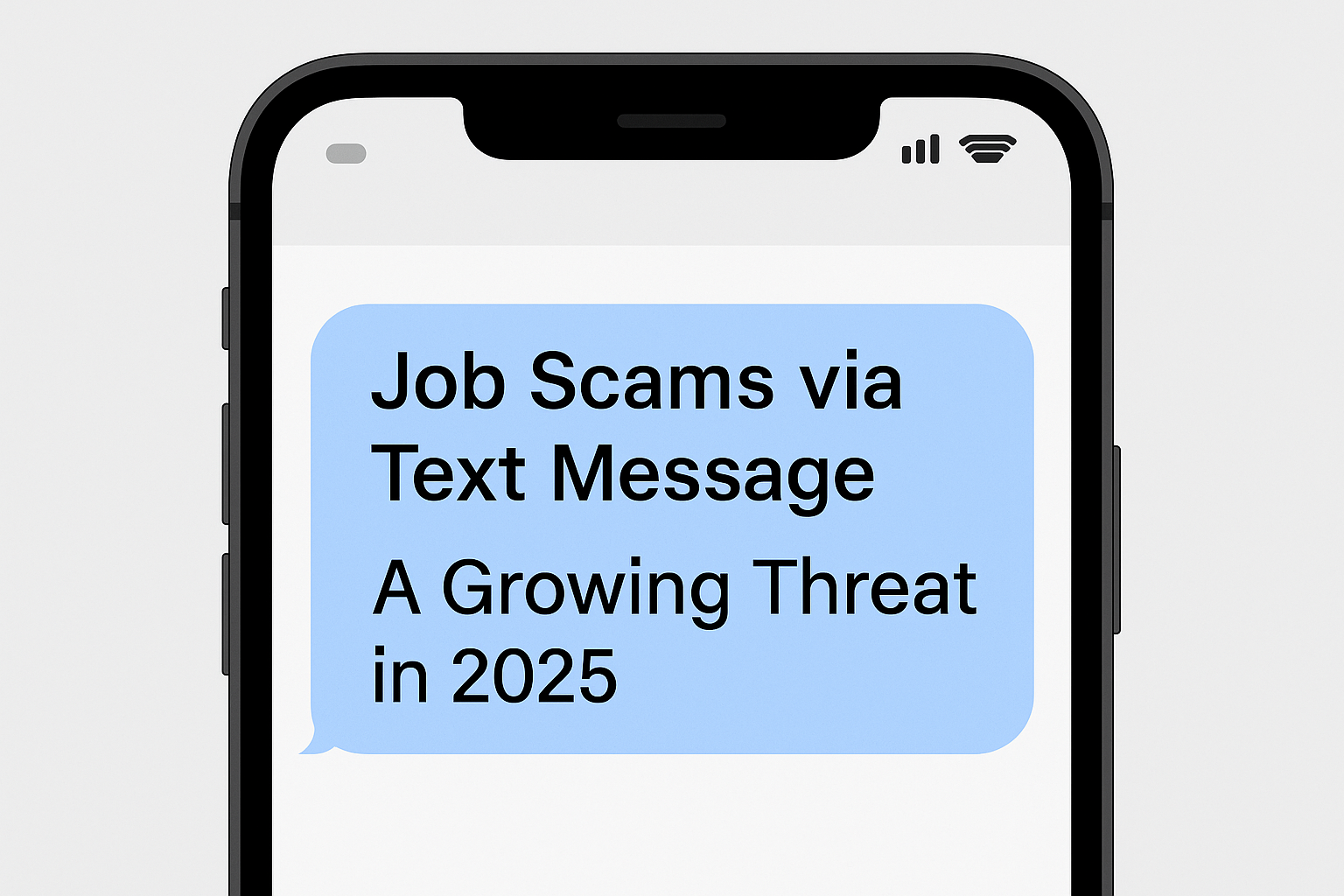Job Scams via Text Message Are Surging in 2025 — Here’s What You Need to Know
In 2025, scammers are increasingly targeting job seekers through unsolicited text messages, offering too-good-to-be-true remote job opportunities. These scams often lead to financial loss, identity theft, or both. As more people search for flexible work online, these tactics are becoming more sophisticated and widespread. This post explores how these scams work, real-world examples, and steps you can take to protect yourself.
The Rise of Text-Based Job Offers
The Federal Trade Commission (FTC) reports that in 2024 alone, U.S. consumers lost over $470 million to text message scams. One of the most common and fastest-growing schemes involves fake job offers. A frequent variation is the “task scam.” Victims receive a message offering remote work performing simple tasks, such as boosting product listings or optimizing app engagement. At first, they may even receive small payments to build trust. Soon, the scam shifts—participants are pressured into depositing their own money to “unlock” higher earnings. That money is never returned, and the scammers disappear. The Verge offers a detailed analysis of how these “task-based” scams operate and why they continue to ensnare new victims.
Real-World Victims
One example that made headlines involved Amana Peters, a 44-year-old woman in Australia who lost $48,000 after applying to what appeared to be a job reviewing Disney+ content. After several initial payments, she was told she needed to deposit more money to continue — a classic hallmark of fraud. In the United States, scammers have impersonated respected organizations such as the Blinded Veterans Association, posting fake transcriptionist jobs and conducting interviews via messaging apps. These scams often include legitimate-looking websites, logos, and even contracts — sometimes powered by AI-generated content. The Washington Post recently covered how difficult it has become to distinguish some of these scams from real opportunities.
How to Protect Yourself
Job-related scams often follow a familiar pattern. Here are some best practices to keep in mind:
-
Be wary of unsolicited offers: Reputable companies rarely initiate hiring via text messages without any prior contact or application.
-
Never pay to get hired: If a company asks for upfront payments, training fees, or deposits, it’s almost certainly a scam.
-
Verify the employer: Cross-check job offers by visiting the official company website or calling the company directly.
-
Don’t share personal info too quickly: Legitimate employers will wait until later stages of the hiring process to request things like Social Security numbers or bank details.
-
Report suspicious messages: Forward the scam text to 7726 (SPAM) and file a report at ReportFraud.ftc.gov.
Final Thoughts
With remote work now commonplace, scammers are adapting quickly to new ways of deceiving people. By staying informed and cautious, job seekers can avoid falling for these costly traps. For a deeper look into how these scams work, check out the video: Why You Are Getting So Many Fake Job Offers By Text





0 Comments